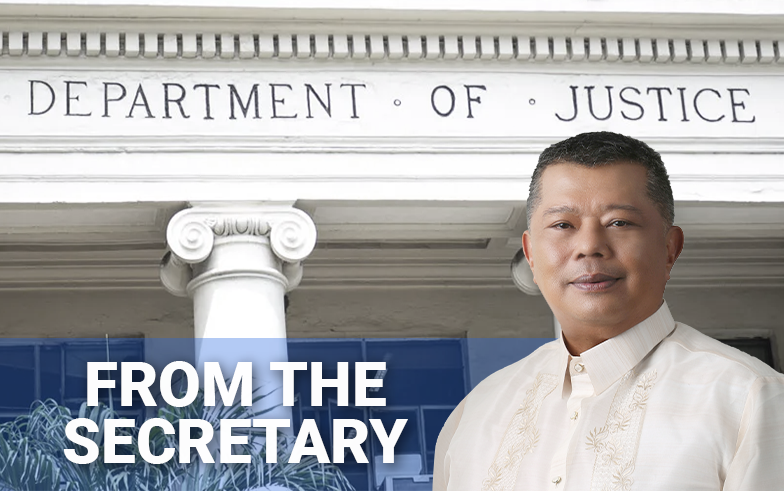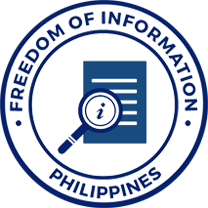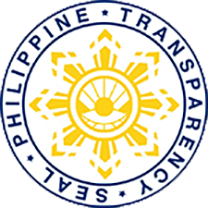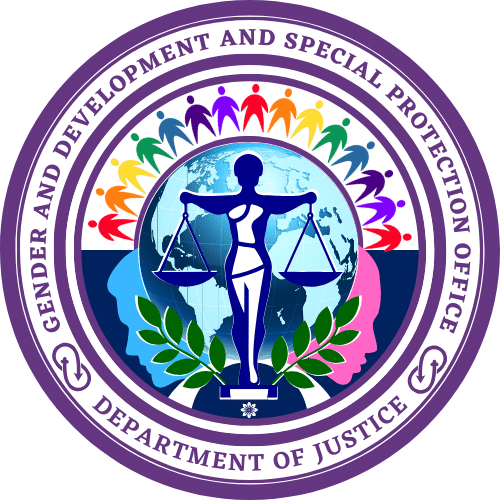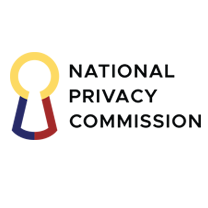Who We Are | What We Do | Resources | News | Contact Us
A. A Brief History of the RSPPU
The Republic of the Philippines is a State Party to the 1951 United Nations Convention Relating to the Status of Refugees, including its 1967 Protocol, the 1954 United Nations Convention Relating to the Status of Stateless Persons, and the 1961 United Nations Convention on the Reduction of Statelessness which are complemented by international human rights instruments. As such, the Philippines is under a legal obligation to comply in good faith with all the provisions of the Conventions and other relevant international instruments to which the Philippines is a State Party to.
The Presidential Decree (P.O.) No. 830, as implemented under Item No. 5 of Letter of Implementation No. 47 dated 18 August 1976, and Administrative Order No. 142, s. 1994 have transferred all actions on immigration matters including the waiver of visas and admission of aliens to the Secretary of Justice or his or her authorized representative. And under Section 7, Chapter 2, Title Ill, Book IV of theAdministrative Code of 1987, the Legal Staff of the Department of Justice (DOJ) may perform such functions as may be assigned by the Secretary of Justice.
By virtue of the DOJ Department Circular No. 58, s. 2012, the Refugees and Stateless Persons Protection Unit (RSPPU), composed of State Counsels from the Legal Staff performing ancillary functions as Protection Officers, was established to lead the Refugee and Stateless Status Determination Procedure and to ensure protection of Persons of Concern (POC) of the Philippine Government.
The mandate of the RSPPU is to provide protection to POCs that would entail the participation and support of relevant government agencies to ensure that POC have access to rights and services, consistent with the provisions of Executive Order (EO) No. 163, s. 2022. Under the said EO, the DOJ serves as the Chairperson of the Inter-Agency Committee (IAC), wherein the RSPPU acts as the overall Secretariat. EO 163, s. 2022 institutionalizes access to protection services for refugees, stateless persons, and asylum seekers in the Philippines. Since then, the RSPPU works together with other relevant government agencies through an Inter-Agency Agreement on the protection refugees, stales persons, and asylum seekers to strengthen the mechanisms in providing the necessary assistance and appropriate services to the POCs.
Parallel to the EO 163, s. 2022, the DOJ also issued the Department Circular No. 24, s. 2022 to strengthen the RSPPU and enhance the rules on refugee and stateless persons status determination. In the same circular, the rights and obligations of POCs were also highlighted, as well as the relevant provisions applicable to all POCs such as the process of status determination.
B. The 9 Waves of Refugees in the Philippines
History would prove that the Republic of the Philippines has an open-door policy when it comes to providing humanitarian assistance to the forcibly displaced in need of international protection. As early as 1917, the Philippines served as country of asylum for several large groups that fled war and persecution in their home countries. This was then coined by Filipino historians, refugees, and the United Nations High Commissioner for Refugees (UNHCR) as the 9 Waves of Refugees, as illustrated with details in the image below.
(Photos and graphics courtesy of UNHCR)
C. The Inter-Agency Committee
On 12 October 2017, the DOJ-RSPPU and various Government agencies agreed to enter into an Inter-Agency Agreement of the Protection of Asylum Seekers, Refugees, and Stateless Persons in the Philippines, after realizing that the protection of POCs requires a whole-of-government approach. The said Agreement outlined the respective roles of each government agency towards providing a wide range of protection services, including but not limited to documentation, access to justice and legal assistance, health and welfare assistance, education and skills training, practice of profession, employment and livelihood, and local integration.
Fast forward to 2022, Former President Rodrigo Roa Duterte signed EO. 163, s. 2022 (Institutionalizing Access to protection Services for Refugees, Stateless Persons, and Asylum Seekers), that recognized the importance and enduring relevance of the following: (1) 1951 UN Convention Relating to the Status of Refugees and its 1967 Protocol; (2) 1954 UN Convention Relating to the Status of Stateless persons; and (3) 1961 UN Convention on the Reduction of Statelessness. In principle, EO 163, s. 2022, strengthens the existing legal framework and mechanisms for the protection of POCs, especially in times of public emergencies.
Under the EO 163, s. 2022, an Inter-Agency Committee (IAC) on the Protection of Refugees, Stateless Persons, and Asylum Seekers was formed and tasked with the central role of assuring the provision of relevant services and assistance to POCs pursuant to the 2017 Inter-Agency Agreement. Notably, the IAC is composed of more than 20 government agencies with the DOJ serving as the Chairperson and the Department of Social Welfare and Development (DSWD) as the Vice-Chairperson. In addition, the RSPPU acts as the overall Secretariat of the IAC.
D. The Inter-Agency Steering Committee
In principle, the Inter-Agency Steering Committee (IASC) serves as a subcommittee of the IAC that focuses on key thematic areas of assistance and support to POCs. These technical working subcommittees, composed of member government agencies under EO 163, s. 2022, meet regularly to discuss protection issues, action points, and ways forward. These include, but not limited to, documentation, legal assistance, health and welfare assistance, education and skills training, practice of profession, employment and livelihood, and local integration.
In summary, presented below is the quick graphic representation of the IASC.

(Graph courtesy of UNHCR)
E. National Action Plan to End Statelessness
The National Action Plan (NAP) to End Statelessness is a framework of seven (7) Action Points, which the Government of the Philippines has committed to implement until the year 2024. It was created in February 2015 in an Inter-Agency Forum that was attended by nineteen (19) Government Offices, namely:
- Department of Justice
- Bureau of Immigration
- Office of the Solicitor General
- Department of Foreign Affairs – Office of Consular Affairs
- Department of Foreign Affairs- United Nations and International Organizations Office
- Public Attorney’s Office
- House of Representatives
- Department of Social Welfare and Development
- Supreme Court – Philippine Judicial Academy
- Commission of Filipinos Overseas
- Council for the Welfare of Children
- Commission on Human Rights
- National Commission on Indigenous Peoples
- Philippine Statistics Authority
- Presidential Human Rights Committee
- National Security Council
- Senate Committee on Foreign Relations
- Senate Committee on Justice and Human Rights
- National Commission on Muslim Filipinos
Several civil society organizations also participated in the forum in the capacity of observers. A follow-up inter-agency meeting was held in April 2016 to discuss updates and ways forward in the implementation of the NAP. In 2017, three (3) technical working groups comprised of various agencies have been convened to operationalize the action points, namely: Children’s Right to Nationality, Facilitated Naturalization and Birth Registration.
On 24 November 2017, the NAP was officially launched by the Government of the Philippines, with the Department of Justice at the helm. Presented below are the 7 NAP Action Points. Please note that each of the action point has an Inter-Agency Technical Working Group with Co-Chairs:
✓ Resolve Existing cases of Statelessness
✓ Ensure No Child is Born Stateless
✓ Remove Gender Discrimination from Nationality Laws
✓ Grant Protection Status and Facilitate the Naturalization of Refugees and Stateless Persons
✓ Ensure Birth Registration for the Prevention of Statelessness
✓ Accede to the UN Statelessness Conventions
✓ Improve Quantitative and Qualitative Data on Stateless Populations
While the NAP was initially set for 10 years and will end in 2024, the NAP TWG members agreed to continue pursuing initiatives to resolve statelessness beyond 2024. These will be done in line with the Philippines’ membership to the Global Alliance to End Statelessness and its commitment as the first country to formally sign up in the Solution Seeker’s Programme.
F. The Inter-Agency Committee on the Complementary Pathways
The Inter-Agency Committee on the Complementary Pathways Programme (IACCP) is the subcommittee dedicated to ensuring the efficient implementation of the Complementary Pathways (CPath) Programme of UNHCR, which are safe and regulated avenues for persons in need of international protection that provide for a lawful stay in a third country where international protection needs of the beneficiaries are met.
To know more about the CPath Programme, kindly click on the photos below to read the full articles published by Government agencies.
REFUGEE-BENEFICIARIES OF PH’S COMPLEMENTARY PATHWAYS (CPATH) PROGRAM FOR ROHINGYAS ARRIVE IN MANILA. Click on the photo to read the full article.
THE COMPLEMENTARY PATHWAYS. Click on the photo to read the full article.
DFA SIGNS LEGAL FRAMEWORK CONCRETIZING PH GLOBAL PLEDGE ON REFUGEE PROTECTION. Click on the photo to read the full article.
A. Overview of Refugees and Stateless Persons Status Determination
One of the primary tasks of the DOJ-RSPPU is to lead and conduct the status determination procedure for refugees and stateless persons in the country, or the process by which refugees and stateless persons are recognized by the Philippine Government. This role is emphasized in the DOJ Department Circular 24, s. 2022 and follows a 7-step process, in principle. Presented below is a quick process flowchart of the status determination procedure.
(Graph courtesy of UNHCR)
B. Protection Mechanism in the Philippines
The EO 163, s. 2022 mandates several national Government agencies to provide relevant services and assistance to POCs. With the IAC serving as the central committee for all referral and coordination, wide range of services such as access to documentation and coordination, education and livelihood, health and welfare, and courts and legal assistance, as needed by POCs, are available to help them assimilate in the Philippines. For instance, the Department of the Interior and Local Government (DILG) issued Memorandum Circular 153, s. 2020, to strengthen the roles of the local government units (LGU) in expanding the protection space for POCs.
Presented below are pertinent issuances with their corresponding timeline from IAC member agencies that comprise the protection mechanism in the country:
|
YEAR |
AGENCY/OFFICE |
ISSUANCE/ACTIVITY |
LINK/REMARKS |
|
1940 |
Bureau of Immigration |
Commonwealth Act (CA) 613 |
|
|
1975 |
Office of the President |
Presidential Decree No. 830, s. 1975 |
|
|
1987 |
Office of the President |
Executive Order (EO) No. 209 |
|
|
1994 |
Office of the President |
Administrative Order (AO) No. 142. S. 1994 |
|
|
1996 |
Congress of the Philippines |
Republic Act (RA) 8239 |
|
|
1998 |
Department of Justice |
Department Order (DO) 94 |
|
|
2004 |
Philippine Statistics Authority |
Memorandum Circular No. 2004-01 |
|
|
2012 |
Department of Justice |
Department Circular 58 |
|
|
2013 |
UNHCR and the Public Attorneys Office |
Memorandum of Understanding |
Internal document |
|
2016 |
Supreme Court of the Philippines |
Poe-Llamanzares v. COMELEC, Francisco S. Tatad, Antonio P. Contreras and Amado Valdez David v. SET and Poe-Llamanzares |
|
|
2017 |
National Action Plan (NAP) to End Statelessness by 2024 |
|
|
|
2017 |
Led by Department of Justice |
Signing of the Inter-Agency Agreement |
|
|
2017 |
Department of Labor and Employment |
Department Order No. 186-17 |
|
|
2018 |
Congress of the Philippines |
Republic Act. No. 11055 and its Implementing Rules and Regulations (IRR) |
|
|
2018 |
Technical Education and Skills Development Authority |
TESDA Circular No. 24-2018 |
|
|
2018 |
Department of Trade and Industry |
DTI Administrative Order No. 18-07 |
|
|
2018 |
Department of Justice |
Department Circular 26 |
|
|
2019 |
Department of Labor and Employment Department of Justice Bureau of Immigration Bureau of Internal Revenue |
Joint Guidelines on the Issuance of Work and Employment Permits to Foreign Nationals |
|
|
2019 |
Bureau of Immigration |
Operations Order no. JHM 2019-004 |
Internal document |
|
2020 |
Department of the Interior and Local Government |
Memorandum Circular No. 2020-153 |
|
|
2020 |
Department of Labor and Employment |
Department Order 218-20 |
|
|
2020 |
Department of Labor and Employment Department of Tourism |
Joint Memorandum Circular 2020-001 |
|
|
2021 |
Republic of the Philippines |
Updated Philippine Development Plan 2017-2022 (Chapters 11 and 12) |
|
|
2021 |
Department of Health Department of Foreign Affairs Food and Drug Administration |
Joint Memorandum Circular No. 2021-0001 |
|
|
2021 |
Department of Labor and Employment Department of Tourism |
Joint Memorandum Circular No. 2021-001 |
|
|
2021 |
Department of Health |
Memorandum No. 2021-0157 |
|
|
2021 |
Philippine Statistics Authority |
Memorandum Circular No. 2021-24 |
|
|
2022 |
Office of the President |
Executive Order 163 |
|
|
2022 |
Department of Justice |
Department Circular 24 |
|
|
2022 |
Supreme Court of the Philippines |
Rule on Facilitated Naturalization for Refugees and Stateless Persons |
|
|
2022 |
Supreme Court of the Philippines |
OCA Circular No. 96-2022 |
|
|
2022 |
Supreme Court of the Philippines |
OCA Circular No. 153-2022 |
|
|
2022 |
Supreme Court of the Philippines |
Guidelines on the Implementation of the Alternative Publication on the Official Website of the Supreme Court of Petitions for Naturalization Involving Refugees and Stateless Persons |
|
|
2022 |
Supreme Court of the Philippines |
OCA Circular No. 164-2022 |
|
|
2022 |
Congress of the Philippines |
Republic Act 11767 |
|
|
2022 |
Department of Social Welfare and Development |
Department Memorandum Circular 2022-015 |
|
|
2022 |
Department of Social Welfare and Development |
Department Memorandum Circular 2022-016 |
|
|
2022 |
Philippine Health Insurance Corporation |
PhilHealth Circular 2022-003 |
|
|
2022 |
National Telecommunications Commission |
Memorandum Circular No, 001-12-2022 |
|
|
2023 |
Republic of the Philippines |
Philippine Development Plan 2023-2028 |
|
|
2023 |
Office of the President |
Proclamation No. 265, s. 2023 |
|
|
2024 |
Republic of the Philippines |
Republic Act No. 11983 or the New Philippine Passport Act |
C. Rights and Obligations of POCs
As highlighted under Sections 4 and 5, Rule 1 of the DOJ DC 24, s. 2022, POCs have the obligation to abide by the laws, rules, and regulations of the Philippines, as well as measures for the maintenance of public order and national security. As may be provided under existing laws, rules, and regulations, POCs enjoy several rights, as follows:
- Access to socio-economic services;
- Social security benefits and labor standards;
- Gainful employment;
- Basic and secondary education (formal and non-formal);
- Judicial and administrative citizenship procedures and other durable solutions;
- Access to courts and legal assistance;
- Freedom/practice of religion;
- Freedom of movement;
- Identity and travel documents; and
- All other public services.
D. Reminders to Asylum and Stateless Applicants
- Ensure compliance with Philippine domestic laws including those which regulate behavior online.
- Wait until you are contacted for the schedule of your interview. Please ensure that your visa remains valid while your application is being assessed by DOJ-RSPPU.
- Inform DOJ-RSPPU of any change in your circumstances, including, but not limited to, change in address, or contact number within seven (7) days from the change.
- Take note of the period of validity of the Certificate of Pending Application (CPA). In case you cannot personally process the renewal, kindly provide your representative with an authorization letter, a copy of your identity document, old CPA, and request for renewal.
- Inform DOJ-RSPPU of any travel plans outside the Philippines, including the purpose of those travel plans. Report to DOJ-RSPPU upon return to the Philippines within seven (7) days.
- You have the right to a legal counsel. You may engage a private lawyer of your preference or seek assistance from the Public Attorney’s Office.
- Be informed that applying for refugee status is FREE of CHARGE.
E. Durable Solution
In line with the obligations of the Republic of the Philippines as a State Party to the 1951 United Nations Convention Relating to the Status of Refugees, including its 1967 Protocol, the 1954 United Nations Convention Relating to the Status of Stateless Persons, and the 1961 United Nations Convention on the Reduction of Statelessness, facilitating access and assisting POCs to find durable solutions is an integral part of the work of the DOJ-RSPPU. Among the durable solutions avialable, it should be noted that local integration is the only available option in the Philippines for refugees. In addition, there will be no resettlement submissions to other countries given the enabling protection conditions in the country. For statelessness, the acquisition or confirmation of citizenship remains the durable solution to end the stateless status.
On 15 February, the Supreme Court En Banc approved the Rule on Facilitated Judicial Naturalization for Refugees and Stateless Persons. The first of its kind at the global level, the Judiciary-led Rule aims to expedite the process and reduces costs of the proceedings, fulfilling the State's obligations under the 1951 Refugee Convention and its 1967 Protocol and the 1954 Statelessness Convention, the Global Refugee Forum and High-Level Segment on Statelessness pledges, and the updated Philippine Development Plan 2017-2022. While anchored on Commonwealth Act 473, it introduces innovations, in line with the Supreme Court's rule-making power, such as allowing electronic publication to reduce necessary fees and unaccompanied children to file a petition for naturalization in line with the right of the child to a nationality. It also upholds the principle of non-discrimination in view of the disqualifications and further considers the specific and unique vulnerabilities of refugees and stateless persons with regard to qualifications and documentary requirements.
F. Global Refugee Forum
One year after the affirmation of the Global Compact on Refugees, which is a framework for more predictable and equitable responsibility-sharing, the first Global Refugee Forum (GRF) is a critical opportunity to build momentum towards achieving the objectives of this new commitment and strengthen collective response to refugee situations. Started in 2019, the GRF has accounted for more than 3,500 pledges worldwide from various cross-cutting sectoral key players to date. The Government and stakeholders in the Philippines have a total of 40 pledges covering improvement of the protection mechanisms, enhancing policy, legal, and operational frameworks, commitments to the Complementary Pathways Programme, and extending protection to persons with disabilities, to name a few.
The full list of global pledges can be accessed through this link: https://globalcompactrefugees.org/pledges-contributions
The growing studies on refugees, asylum seekers, stateless persons, and populations at risk of statelessness have been instrumental to cascade the unheard narratives of these population groups, highlighting not only their circumstances, but also their stories of triumph. Enumerated below are some of the publications that UNHCR has conducted to enhance the growing knowledge base on refugees, asylum seekers, stateless persons, and populations at risk of statelessness.
-
Financial Inclusion Study (Link to document)
-
Desk Review Report (Link to document)
-
Sama Bajau Profiling Report (Link to document)
Department of Justice – Refugees and Stateless Persons Protection Unit
DOJ Main Building, Padre Faura Street, Ermita, City of Manila
Office hours: 9:00 am to 4:00 pm; Monday (for confirmed appointment only); Tuesday to Friday (for walk ins), except public holidays
Telephone Number: +632 8524-9315
Email: [email protected]
